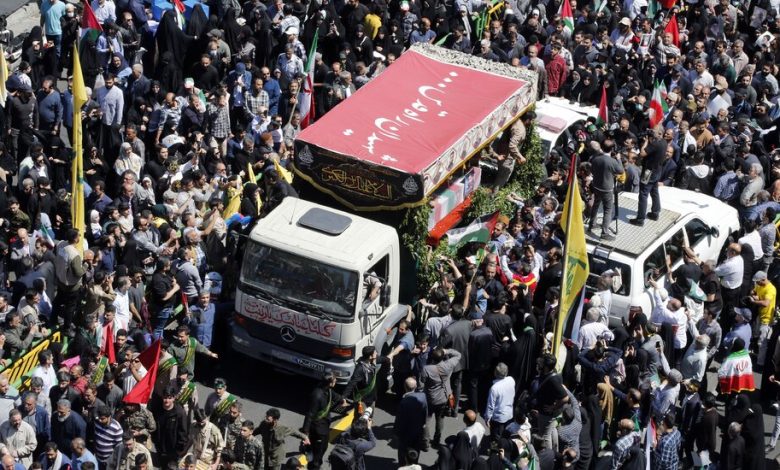Iran’s Retaliation Likely to Be Limited, but Errors Could Lead to War, Experts Say

Israeli forces were on high alert on Friday in anticipation of a retaliatory strike by Iran or its proxies, which analysts and officials warned could spur an Israeli reaction and potentially provoke a broader conflict in the region.
Iran is expected to launch an attack as soon as this weekend in retaliation for an April 1 airstrike, in which warplanes struck an Iranian Embassy building in Damascus, killing three generals and other commanders, U.S. and Iranian officials said on Friday.
Military analysts said neither Israel nor Iran appeared interested in provoking a full-blown war that could draw in the United States, but that a miscalculation about either side’s red lines could result in an escalation in hostilities.
An Iranian response was inevitable given the high profile of one of the generals killed in Syria, Mohammad Reza Zahedi, a top commander in Iran’s Quds Force, the analysts said.
“For every wise player, there comes a moment when the cost benefit calculation shifts and all strategies are reset,” said Mahdi Mohammadi, the chief adviser to Mohammad Bagher Ghalibaf, the speaker of Iran’s Parliament. “For Iran that moment was the attack in Damascus.”
Israel expects Iran to strike in a way that allows it to save face, but is measured enough to not arouse an even fiercer counter-strike, analysts say. The Iranians “don’t want a total war,” said Amos Gilead, a retired Israeli general. “So they might attack targets that would enable them to declare that they’ve achieved a great victory.”




